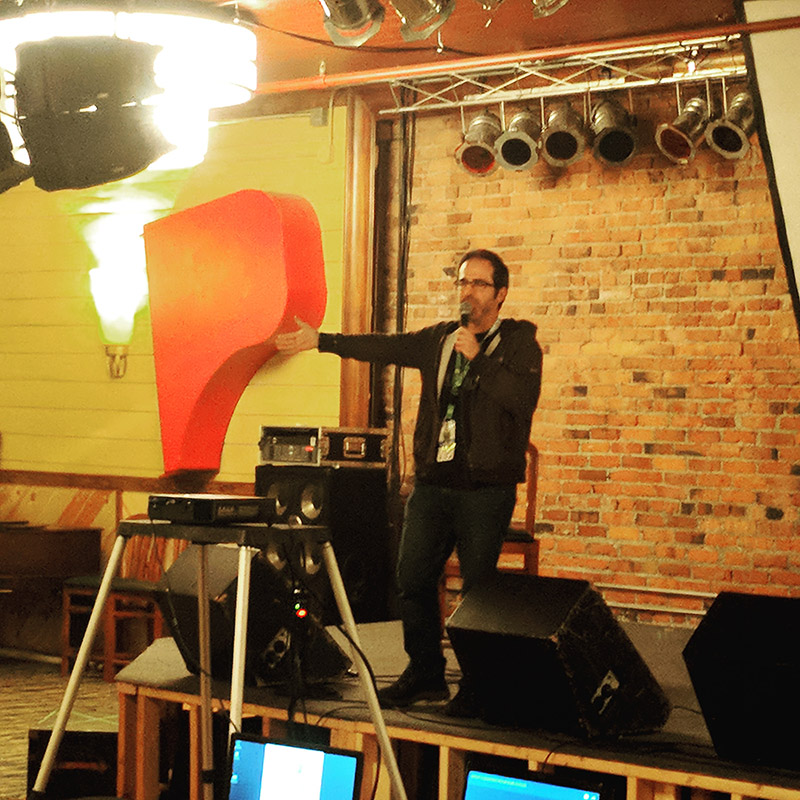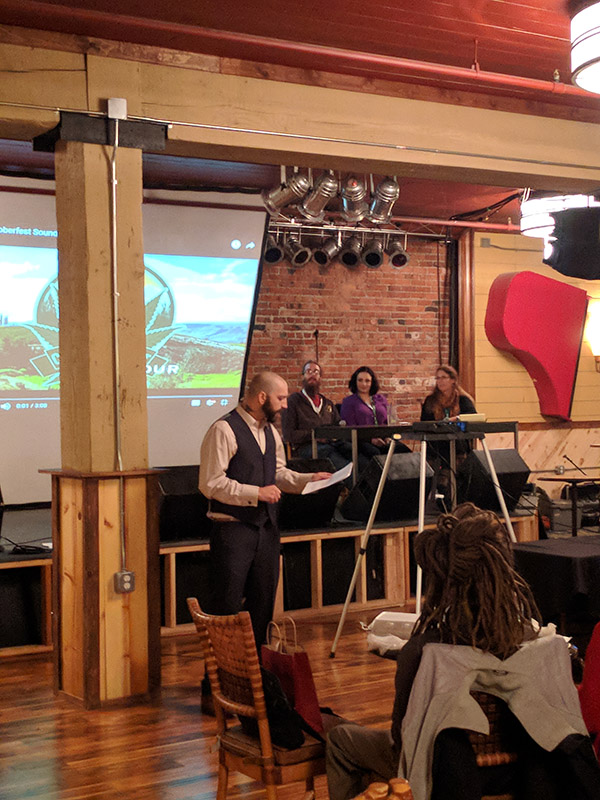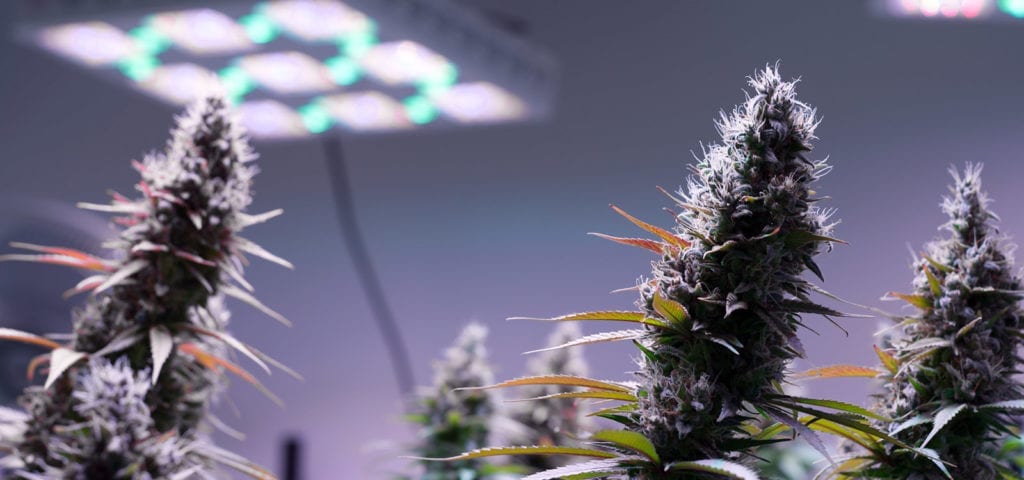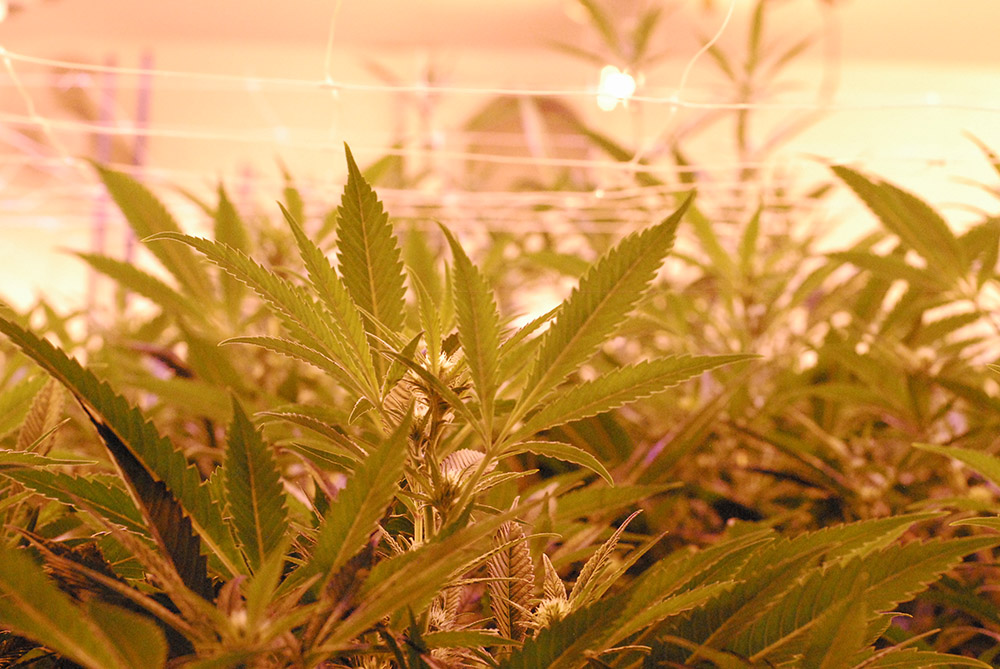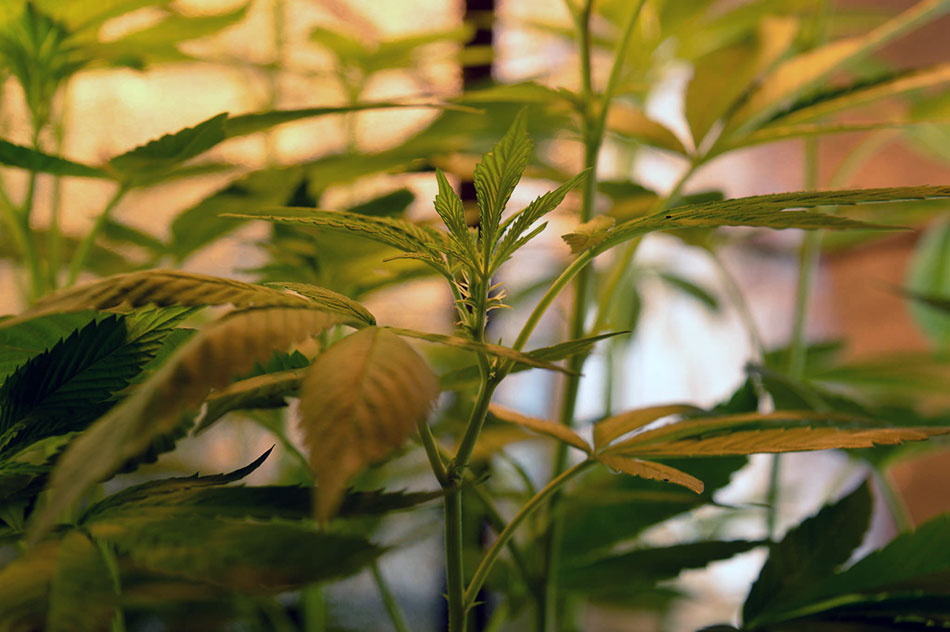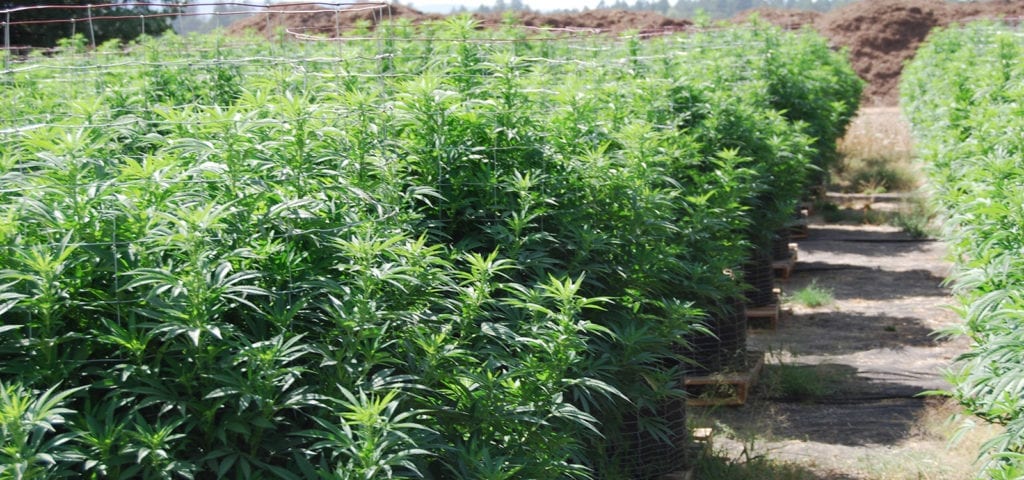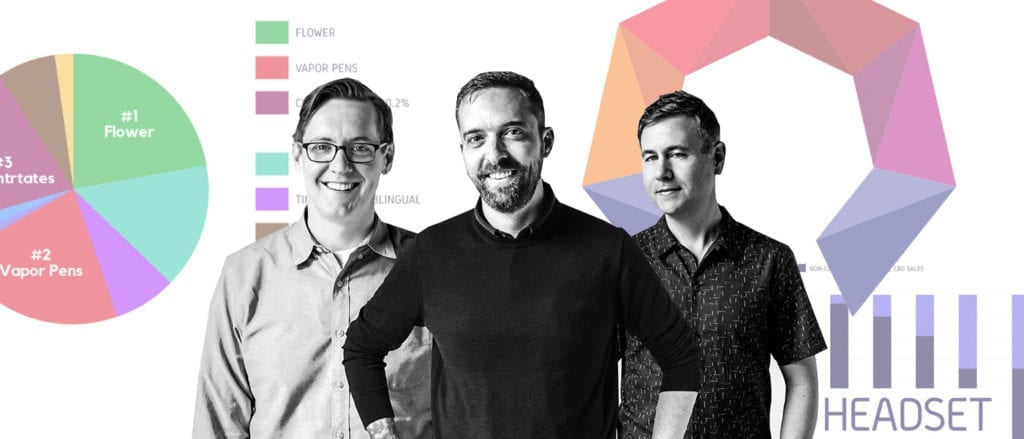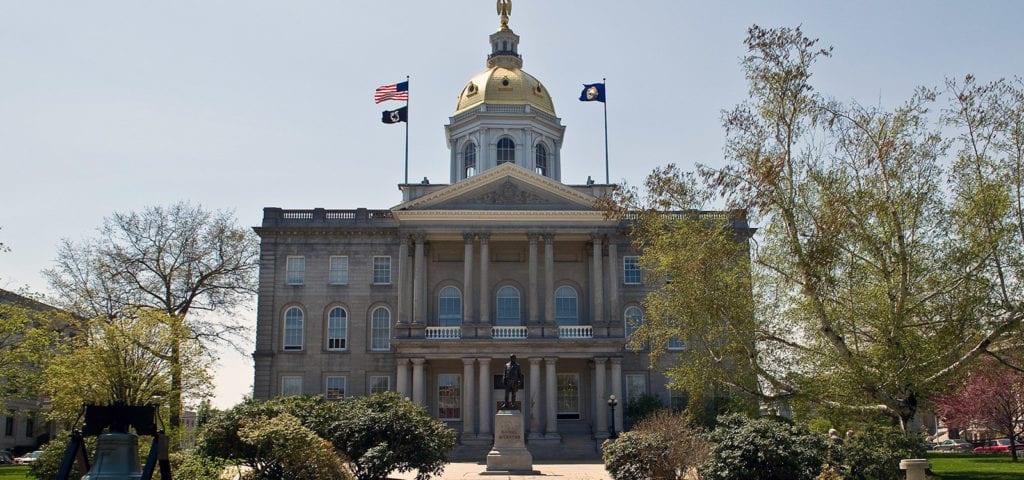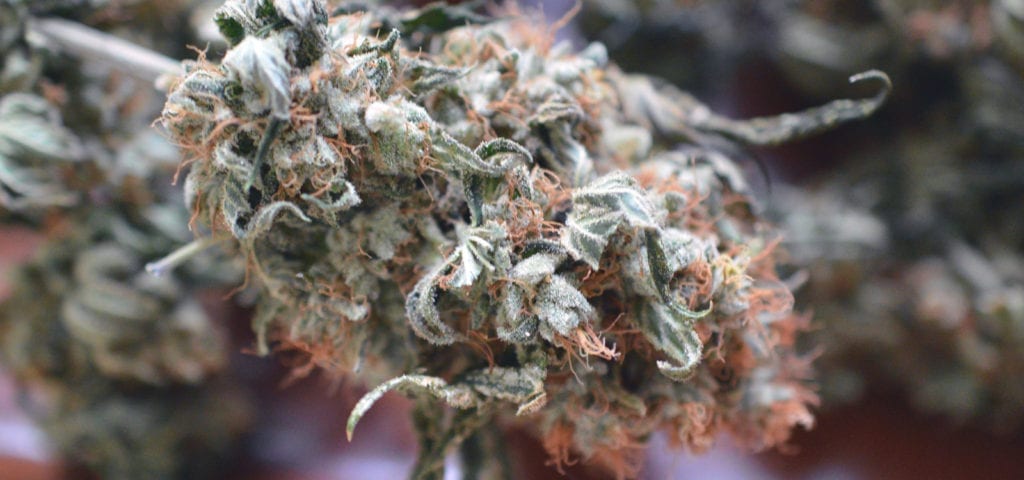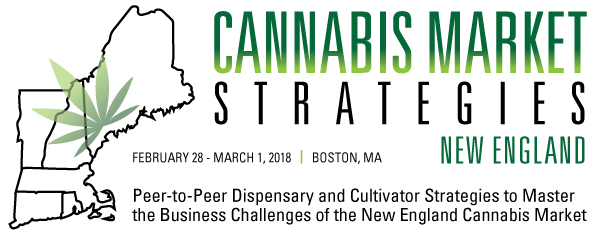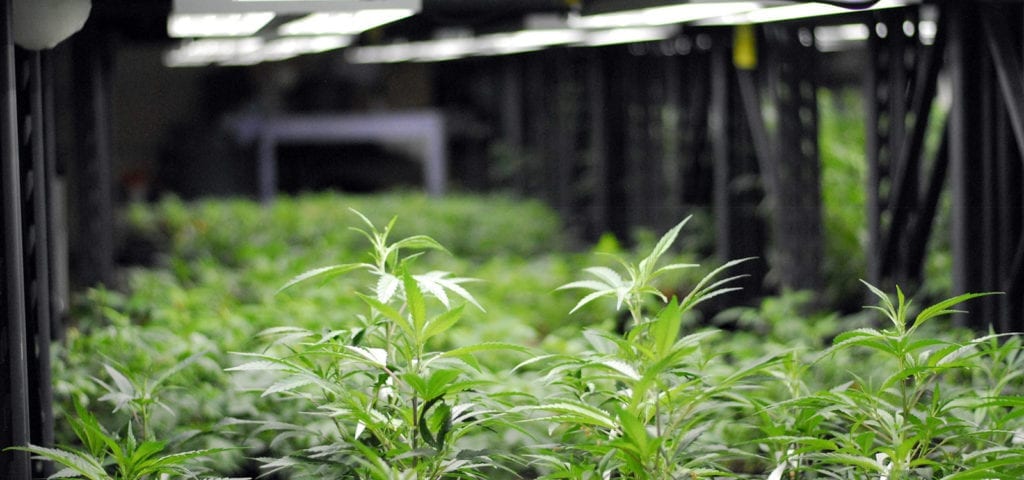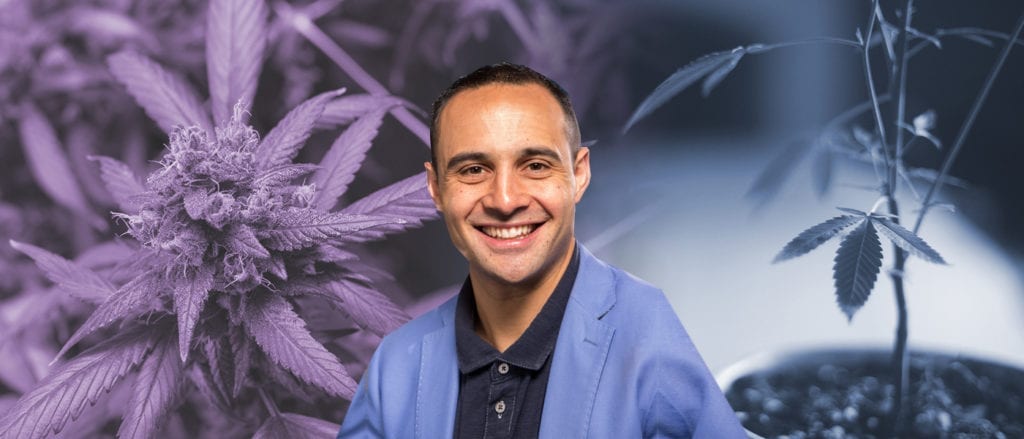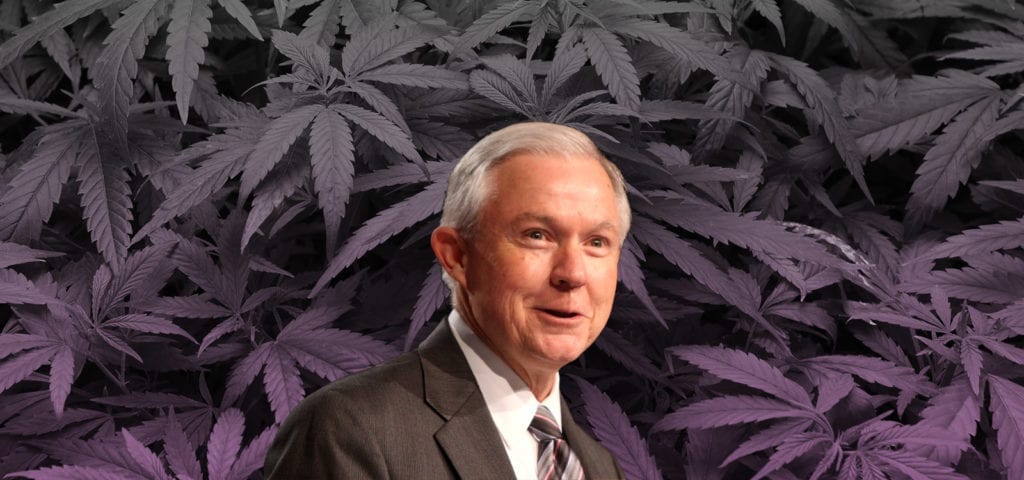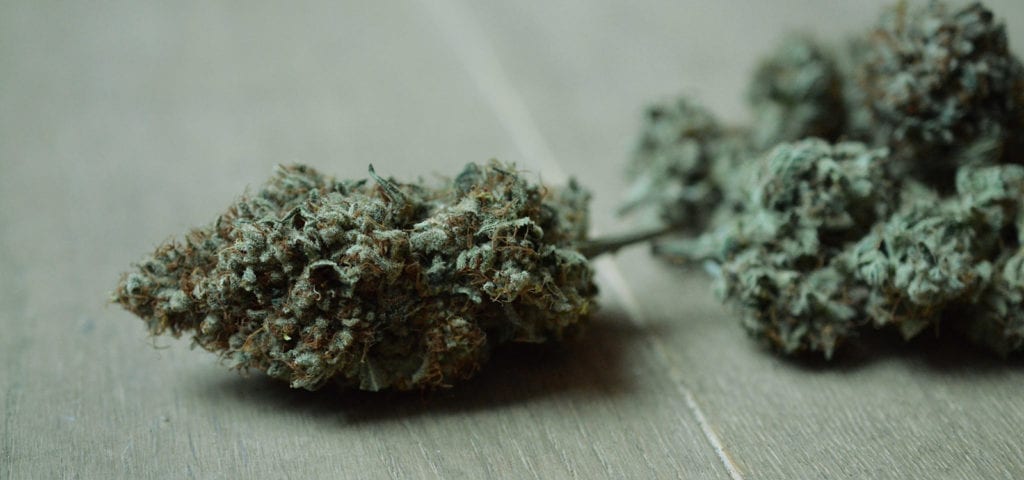For entrepreneurs in the volatile cannabis industry, keeping up to date on the market is a must. Due to volatility and competition, being aware of changes in the market as they are happening can spell the difference between success and failure for a cannabis startup. Since there are few reliable sources of historical data on cannabis market trends before legalization, business owners need to make the most of the data that exists since legalization took effect. Headset, a business intelligence software platform for the cannabis industry, aims to help them do just that.
In this special edition of the Ganjapreneur.com podcast, our COO Noel Abbott sits down with Headset cofounders Cy Scott, Brian Wansolich, and Scott Vickers (who were also the original cofounders of Leafly) to talk about the data they have accumulated through point-of-sale systems in the Washington state cannabis market, including purchasing behavior among demographics, the shifting popularity of products on the market, who the market leaders are in terms of sales & revenue, and more!
You can listen to the podcast below, or scroll further down to read a full transcript of this Ganjapreneur.com podcast interview.
Listen to the podcast:
Read the transcript:
Noel Abbott: Hi, there. I’m Noel Abbott, Chief Operating Officer of Ganjapreneur.com, and you are listening to the Ganjapreneur.com podcast. The Ganjapreneur.com podcast gives us an opportunity to speak directly with cannabis business owners, activists and industry stakeholders, to bring you actionable information to improve your business strategy and to help normalize cannabis. Today I’m hosting a special edition of the Ganjapreneur.com podcast, and I am joined by Cy Scott, Brian Wansolich and Scott Vickers of Headset, a market data and business intelligence platform for the cannabis industry. How are you guys doing today?
Cy Scott: Doing great.
Scott Vickers: Great.
Brian Wansolich: Yeah, thanks for having us.
Noel Abbott: Thanks again for hosting me. Just so our audience is up to date, Cy, Brian and Scott are also the original founders of Leafly, one of the most popular cannabis websites in the world. Just a few weeks ago, I was here on site at the Headset office for a podcast interview about their experience developing, growing and ultimately exiting Leafly to launch their new venture, Headset, how they came up with the idea for a strain database and information portal to begin with, how the design of Leafly has had a major impact on visual design throughout the cannabis industry, and just what that whole startup journey was like for them.
I definitely recommend checking it out. We covered a lot of ground and there are a ton of insights and inspirations to be gleaned, I think, for anyone who’s currently in full startup mode, pursuing their dreams. If you missed that episode, you can find it on Ganjapreneur.com or wherever you download podcasts.
Today we’re going to be talking a lot about market data. First, for the people who didn’t listen to the previous episode yet, and also just as a general refresher, can you give me a brief overview of what Headset is as a platform and where your market data ultimately comes from, and then also, what is the scope of the data that we’ll be discussing today?
Cy Scott: Sure. Headset is a data and analytics company for the cannabis industry. We really are out there to try and take the assumptions and the guesswork out of making key business decisions about your cannabis business, whether that’s your own internal data … if you’re a retailer or dispensary, making better sense of what your store’s data is telling you … or a processor, vendor, producer group like that, really understanding the competitive landscape, your brand positioning, and what opportunities might exist through market intelligence.
Noel Abbott: For the scope of today’s line of questions, what is the batch of data that we’re looking at?
Cy Scott: Today we’re going to be talking a lot about our market data, so that all comes from the point-of-sale systems directly. We’re able to look in aggregate across all these difference transactions happening at different retailers within different markets. We work with 10 of the leading point-of-sales right now in the industry. We’re always adding more as well. As far as the data that we’re going to be looking at, it’s primarily from the beginning of 2016 to today in the Washington State market.
Noel Abbott: Also, with the questions I have today, I’m going to be diving into a lot of specifics about consumer demographics and market trends that are reflected in this data. My first question is what have you seen so far in terms of the consumer demographics and their behavior? What age range buys the most cannabis, and do different demographics have different preferences in terms of the types of products that they buy?
Brian Wansolich: You know, they do have some different preferences. We still see, of course, flower is still the largest overall category, regardless of generation. Interestingly enough, the second-place category that people buy into is different for each generation. For example, Millennials, they tend to buy concentrates the most. They make up 17 percent of sales for their generation. For Gen X it’s kind of a tie between concentrates and vapor pens specifically, and then Boomers, they like vapor pens and pre-rolls the most, and then I think you can just look at the Silent Generation just primarily going for vapor pens. In terms of consumption of flower by volume, Millennials, Generation X and Baby Boomers, they split all their spend in very similar ways.
Noel Abbott: How much of the market is made up by each demographic? Is it heavily leaning in one direction, or is it spread evenly across the board?
Brian Wansolich: I think we see Millennials as being the dominator in that regard. They make up the most right now. They had like 49 percent of the total market share from last year, and a slight increase this year to 51 percent. Not too far behind that are the Gen Xers. It was like 35 percent of the market share last year, and about 34 percent for this year. Also, if you just want to throw in gender, women make up a larger part of the market for Gen Xers and Boomers than other generations, 35 percent and 38 percent respectively. Millennials, women make up about 31 percent of the purchases, and of course the Silent Generation, they’re mostly male-dominated, so it’s about 22 percent of women make up sales from that generation.
Noel Abbott: It’s interesting to hear that there are more women from the Boomer generation than other generations. I would kind of expect it to be the Millennial generation that would have the most equal distribution of consumers, the most balanced normalization of cannabis across genders. I wonder if that’s a representation maybe of just how harsh the propaganda against cannabis has been since the ’60s.
Brian Wansolich: Yeah, we thought that was kind of a striking little stat there.
Noel Abbott: As the market has grown and evolved, have the demographics shifted very much? Are there consumer demographics that are growing faster than others?
Brian Wansolich: You know, I think it’s just pretty … they’re all pretty close, but we’re starting to see Millennials take that charge right now.
Noel Abbott: It sounds like pretty much everybody prefers flower, and that’s the most common purchase across all demographics. Across the market as a whole, what strains do people buy the most often?
Brian Wansolich: Yeah, so Blue Dream is the king, which it’s kind of been. It seems to be everybody’s favorite all the time. Since I started smoking weed, anyway, it was always. As far as units sold, Blue Dream. A close second is Gorilla Glue. You know, they’re close. Blue Dream had I think about 1,040,000 units, for a total combined revenue of roughly $19 million in Washington. Gorilla Glue sold slightly less units but was slightly higher revenue, so 30,000 fewer units but total estimated revenue was about $21.2 million. Dutch Treat follows after that, a pretty significant decline, and Green Crack comes fourth place.
Noel Abbott: Green Crack is fourth place?
Brian Wansolich: Yeah, so still holding on there. Yeah, so Blue Dream and Gorilla Glue. Although Blue Dream sold more units, less revenue. It could be larger producers doing Blue Dream at a more discounted price versus the ones doing Gorilla Glue.
Noel Abbott: I wonder how much of that is driven by the consumer versus driven by the producer? If so many farms are growing Blue Dream strains because they know that it’s everybody’s favorite strain, or if it’s a little bit of both, where people like the strain that they see everywhere and that they’re most familiar with?
Brian Wansolich: Yeah, definitely. It could be both, and the larger producers have obviously more shelf space, more distribution across the state, so that kind of drives purchase as well. It may not necessarily be the strain choice, but more the availability. A lot of producers do Blue Dream because it’s always been popular.
Noel Abbott: Cool. My next question may be opening a huge can of worms both with our audience and your customers, I would bet, so I really need to preface it by saying that there are a lot of different factors that define success and popularity, and there are a lot of producers who are specifically going for that small, boutique model. With that said, who are the market leaders in Washington State, just based on the numbers?
Cy Scott: When we dig into our data, really a majority of sales goes through the flower category. Roughly about 60 percent of all transactions are related to flower products. When we look at top brands, or who’s selling the most units and driving the most revenue, it’s really brands that operate within that flower category.
Here in Washington State, the top two brands that we’re seeing are Phat Panda and NWCS, or Northwest Cannabis Solutions. They come pretty close in terms of both estimated units sold and estimated revenues, pretty neck-and-neck there. Then they’re followed up by Artisan Cannabis, which sells about 300,000 units less than Phat Panda or NWCS.
When we look at Phat Panda and NWCS, they’re at about 1.2 million units sold. That’s looking at data for the last year, so from a year ago to today, driving about $22 million to $24 million in estimated revenue, so pretty sizable brands. Then Artisan coming in at about 760,000 units sold, so just over 300,000 less than the top two, followed by Fireline Cannabis and Top Shelf Cannabis. When we look at Fireline or Top Shelf, they do about 50 percent of the units sold that we’re seeing at Phat Panda.
It’s pretty interesting, how much market share groups like Phat Panda and NWCS are grabbing. A lot of it has to do with the number of SKUs that they’re producing. Our data shows that they have over 1,000 different SKUs on the market across nine different segments.
When we look at pricing as an indicator, they’re actually a little more expensive than industry average, where their average item price for single-gram products is about $9 for Phat Panda, where the industry average is $8, and that’s pre-tax pricing, so a little more expensive. The same thing with their eighths, or 3.5 grams, where they’re about $30 versus an industry average of about $24. They’ve got really good distribution, which could drive a lot of those unit sales, and they’re also pretty well known for some interesting branding and packaging.
Noel Abbott: Yeah, definitely. I think a lot of the retailers that I go to in Bellingham, they have a shelf with the Phat Panda, all the different products with their different labels. You can kind of tell when you’re scanning across. There are certain brands who make everything uniform, and then Phat Panda and a few others have every label very colorful, unique, and it really pops out when you’re scanning a shelf.
Cy Scott: Absolutely.
Noel Abbott: I also want to ask about CBD-dominant strains, and specifically how much of a role they really play in the market. Are they popular as a consumer purchase, or is it something that’s relatively uncommon?
Scott Vickers: Yeah, so they are pretty low as far as a share of the market, hovering just under 1 percent of all flower units sold. Flower and pre-roll, this would include.
Noel Abbott: Less than 1 percent.
Scott Vickers: Yeah, a little bit less than 1 percent. On the popularity side, Harlequin, Pennywise and ACDC are kind of the go-to high-CBD strains that people produce. Yeah, it’s not all that big as far as market share.
Noel Abbott: Do you think that might be partially due to availability, or do you have a way of knowing whether these products are sitting on the shelves, whether they’re being produced in high quantities and just not selling, or is it something that maybe they’re just not producing very much of them so it’s not a very …
Scott Vickers: Yeah, I think our sense is that it’s more due to consumers looking for the high THC. You know, you go and you’re spending $10 or whatever you’re spending. You want the most bang for your buck, typically. CBD is somewhat specialized for a lot of medical consumers who are looking for that pain relief. People like it, the more connoisseur purchasers also, but it still remains a pretty small segment across the board.
Noel Abbott: Do you think that perhaps people are buying CBD in other formats? Maybe they’re buying CBD vape cartridges or concentrates or something like that?
Scott Vickers: Yeah. Definitely on the vape cartridges, it’s going to be more. It’s easier to include CBD in an extraction or add it in in the cartridge, versus growing a high-CBD strain. Also the more medical forms like the capsules and tinctures and stuff, they can also add it in and kind of market that more towards those consumers, the higher CBD, people looking for it. It’s definitely easier than growing the flower.
Noel Abbott: Yeah, that makes sense. When consumers do purchase flower, just any type of flower, what volumes do they tend to purchase in? Do people buy in bulk, or is it pretty much small quantities here and there, trying out a lot of different brands?
Brian Wansolich: When we look into this, we see mostly the smaller units, like grams, like 44 percent. Pretty much our customers are just buying … you know, 44 percent are in grams.
Noel Abbott: Just one single gram?
Brian Wansolich: Correct. Correct, yep. Then, you know, that bumps up a little bit more, but not a whole lot, like 39 percent of consumers purchase eighths, obviously, after that. Less, of course, when you start going up in the weight, but maybe sometimes with the price-minded consumers, i.e. Millennials, it would maybe behoove them to buy like a good low-priced half-ounce if there’s a good deal on it.
Noel Abbott: That’s interesting, to learn that there’s this big chunk of the population that going in just to buy a single gram, you know? I wonder if that’s people who are kind of just looking for a casual weekend, or maybe now that cannabis is available in stores, people just aren’t as worried about running out as they were.
Brian Wansolich: Yeah. As some people joke about Millennials and avocado toast, maybe there’s a correlation there. I don’t know, just to perpetuate that silly little quip that people make.
Noel: I’m a Millennial and I love avocado toast, but I’d probably say cannabis is better for me in the long run. Let’s talk about pricing. I’ve seen prices go up and down quite a bit since the market launched in Washington. It’s been very volatile, but it does seem like over the past year things have started to stabilize a bit, somewhat. Over the past year, what have been the average prices for different volumes?
Cy Scott: Yeah, a great question, and I think this kind of feeds into what Brian was just saying about the volumes sold, seeing this large amount of sales going to grams, almost 50 percent essentially. A lot of it could be driven by price, and what we’re seeing, the average item price for a gram of flower is about $8. Again, that excludes the taxing on that product, so it’s probably not your out-the-door price. It’s for sure not the out-the-door price. For that, you’re going to have to add back in an additional 45 percent, essentially, which is the cannabis taxation and then the sales tax included there, but still a relatively low price for a single gram.
Pricing, what we’ve seen in pricing in general is that it’s really … it has dropped quite a bit from the beginning of the industry, but it’s somewhat leveling out now, at least as far as retail pricing goes. You know, a gram is about $8, and then eighths, which make up about 40 percent of all sales … so 3.5 grams … go for about $24. Then if we’re looking at the higher end of weights, ounces of flower, average item price is about $95, which makes it down to about $3.40 per gram.
When you compare that per-gram price, $3.40 to an $8-per-gram price for just purchasing the single grams, you see it essentially saves about 50 percent to buy in bulk. You get a much better deal that way. Like many products, bulk sales generally drive the prices down per unit, but there’s things like packaging costs that are excluded that roll into that single-gram price, especially in markets like Washington where everything has to be prepackaged.
Noel Abbott: Right. It’s so funny to see a giant bin full of single-gram baggies, but that’s just how it works here. Single grams and eighths are kind of similar to what I remember pre-legalization, at least where I was in Southern California. That said, what have been some of the most expensive cannabis products that have ever been sold and recorded by your system?
Brian Wansolich: Yeah, it’s funny. Of course it varies per category, but I think the one that stands out the most is in the pre-roll category. You’ve got cannagars out there. There’s a company called Leira. They make a cannagar, and those can go from like $350 a unit on average, sometimes more, depending on the store you buy it at. I feel like that they bill that as a special-occasion kind of pre-rolled cannagar.
Scott Vickers: It’s 15 grams.
Brian Wansolich: Yeah, 15 grams. There’s a lot going into it, too. It’s not just a pre-roll. It’s not just wrapped in some kind of tobacco leaf. It’s wrapped in cannabis leaves and there’s layers of kief, sometimes strung in with oils and waxes and things like that. It’s really potent. A lot of love and care goes into it, which probably justifies that price point.
You go into the other categories, and edibles, I think there’s a producer here, Sweet Nirvana Bakery. They make these 10-packs of these fruit chews, Groovy Chews, I believe, and they sell for like $40 a unit on average. Yeah, that’s pricier than some of the others you see out there, depending on who’s selling it and what their suggested price is, but that’s what we’re seeing.
We could go into other categories. I think if you look at the concentrates, we have a producer also known as Craft Elixirs, and they sell for $130 a unit, which is like three grams of this Jacky White RSO, so some special stuff. They justify the price, I’m sure, because three grams, it’s kind of a quantity to buy when it comes to concentrates. Most concentrates we see are sold in one-gram units.
Noel Abbott: Yeah. That’s interesting, how the prices vary quite a bit per category. You know, like a single pre-roll that’s not a cannagar is between five and ten bucks, usually, from what I’ve seen, and then you can go all the way up to an extremely luxurious product, and in some of these other categories it’s a lot more. There’s a lot more similarities between the more expensive products and the less expensive products. Looking at the big picture of the market over the past year, what product categories would you say are currently the fastest-growing or would make the best opportunities if I’m a producer/processor?
Scott Vickers: To know the best opportunities, you have to subscribe. It gets a little bit complicated in figuring out opportunities, with growth rates and number of competitors and all those sorts of things. Kind of high-level, categories that are growing, edibles are growing pretty past. Flower, although total sales grow year-over-year for sure, I think the past at least 12 months, maybe 12 to 18 months, the overall market share of flower is declining. It’s getting picked up by a lot of concentrates, edibles.
Then smaller categories, things like capsules, tinctures, where there’s not a lot of players in it, are growing at a higher rate. Of course, there’s a lot fewer dollars involved, but I think there’s something like 1,200 or more flower brands available, something crazy like that, and capsules, there’s significantly fewer. Maybe it’s 10 or less for capsules or beverages. Things like that kind of offer a little bit easier opportunity to stand out from the crowd, when you’re not competing with so many others.
On the flip side of fewer competitors in the segment, it means there’s probably not a lot of consumers looking for it. The stores don’t want to take up a lot of shelf space. You don’t necessarily need to carry five different brands for capsules. They’d rather use that money on inventory, on more flower, more concentrates, and then have capsules for people that really want them, but maybe only sell one or two different types.
Noel Abbott: I get that from a retail perspective, totally. It’s just hard for me not to assume that there might still be this group of patients out there left over from the medical market in Washington that would probably go for those more medical-oriented products, not to mention people who have never tried using cannabis to treat their arthritis or their back pain or what have you. I don’t know. It just seems like, as an observer of the industry, that there could be an opening there in terms of there being a need that isn’t fully met.
I guess to really see that, you would need to look at the data on an individual basis. As a Headset user, whether you’re a producer/processor or a retailer, can you actually track all of these individual statistics to see what’s selling and where the opportunities are as they relate to your own business?
Brian Wansolich: That’s correct, and in real time as well. The stats aren’t stale. You don’t have to wait a month or so to see these. You just log right in and you’re there.
Noel Abbott: Okay. For people who aren’t subscribers, I understand that you guys produce on a regular basis industry reports that are similar to what we’ve done today, where you kind of isolate a chunk of data and then you dive into it and come up with an analysis to hopefully enlighten people about the industry, trends within the industry, and how certain product categories are performing and things like that. With the reports that you’ve produced so far, what have been some of the most interesting or unexpected discoveries that you’ve found while looking at all this data?
Brian Wansolich: Yeah, yeah. That’s a cool question. There’s a lot of stuff. Things stand out, or just sometimes being validated of our assumptions is great. We do put these reports out once a month at least. We had a demographics report that was our most recent, and we spoke to some of it earlier, but there was a pretty funny stat in terms of the Silent Generation. I know it’s not funny, but 10 percent of their items that they purchase are over $40, so they spend the most on the most expensive products, you could say. Maybe it’s just because … you know, I don’t know. I hate to say, but maybe they’re on their way out and they decide, “Let’s just get the premium stuff while we can,” and so I thought that was a pretty good standout stat that we got from that report.
Interestingly enough, the basket size has kind of declined for all of the age groups just over the last year. Our assumptions could be that it just might be that the novelty of legal cannabis here in Washington has just worn down a little bit. Everybody knows, you know. It’s not a big deal.
Noel Abbott: When it’s a new thing, you show up and you want to try everything, and then once you get used to it, you just are there for the one thing you’re picking up.
Brian Wansolich: Yes, uh-huh. Maybe we’re just seeing everyone like you mentioned, like, “Oh, we got this now,” and we just kind of evened out a little bit. Millennials, they haven’t actually slowed down in their purchases. It’s still pretty good. Their baskets, I guess we’ve seen that they’ve declined only 18 percent, while Gen Xers and the Baby Boomers, their baskets have declined like 25 percent. Then of course, Silent Generation, theirs has been the largest decline, like 40 percent. Maybe because Millennials are already buying more affordable items, it might be a sign that their consumption is just more durable than the other generations, or maybe it’s more of an essential than it is a luxury, if we can make that assumption there, but that was pretty interesting.
If you just roll into another one, concentrates, that report was before the demographics report that we did, pretty fresh, and concentrates, they have a small share of the market when you compare to flower, but they’re now currently like the second-largest category that we’re seeing come up. It made up 11 percent, almost 12 percent, of sales in just from July, and that’s up from 10 percent the previous year. Concentrates are something to look at, now that they’ve surpassed pre-rolls, which used to hold the second-place growth category.
Noel Abbott: Yeah. I would expect that, because they’ve really only sprung onto the scene in a major way within the past five years or so, that there are still a lot of people who are trying them for the first time and maybe getting their first dab pen or something like that, that would enable them to buy concentrates on a regular basis.
Brian Wansolich: Yeah, and there are some interesting thoughts about younger generations perhaps not wanting to smoke as much. They lean towards, you know, this is a better way, maybe a healthier way. You’re consuming less, getting higher impact and potency and stuff like that. There are 16 segments within concentrates, which is a pretty big number of breaking down that one category. Basically, we see wax 60 percent of total sales, and shatters a distant second with 12 percent. Those numbers have kind of changed over the last couple of years dramatically. Concentrates is something to look at, and it’s pretty interesting to watch that one.
Noel Abbott: These reports that you produce, are they all just available online?
Brian Wansolich: Yeah. You can actually go to Headset.io and look up our industry reports. Of course there’s a little bit of a form we want you to fill out just to see where you are, who you are. A lot of consumers, just regular folks, just love to get these. We do them for free, but we are going to roll out a paid model for some more in-depth reporting around that, so we put out these current reports. They’re smaller, snack-sized reports, you could say, but we’re going to actually get more firepower behind those and release quarterly and yearly reports that we would probably want to definitely start charging for. It’s something to look out for next year.
Noel Abbott: Okay, cool. I’ll look forward to checking those out. That’s pretty much all the time we have for today. Thank you again for hosting me.
Brian Wansolich: Yeah, definitely. It’s always a pleasure.
Noel Abbott: This has been a special edition of the Ganjapreneur.com podcast, featuring the co-founders of Headset, Cy Scott, Brian Wansolich and Scott Vickers. You can find more episodes as well as transcripts of the Ganjapreneur.com podcast in the podcast section of Ganjapreneur.com and in the Apple iTunes store on Stitcher, SoundCloud, or wherever you download podcasts. On the Ganjapreneur.com website, you’ll find the latest cannabis news and cannabis jobs updated daily. You can also download the Ganjapreneur app in iTunes and Google Play. I have been your host, Noel Abbott.



